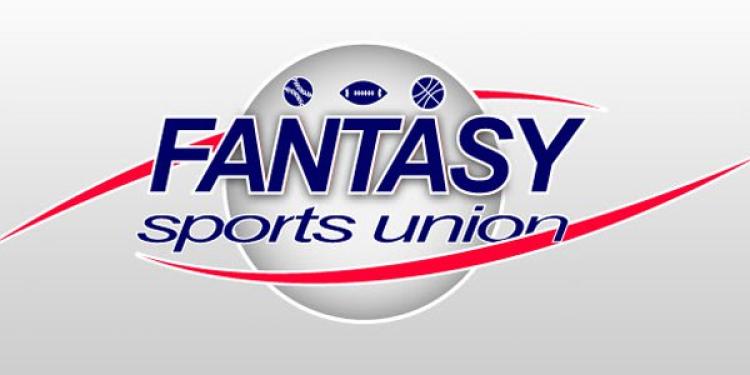4 Reasons Why Pro Sports Leagues are Dripping with Hypocrisy on Fantasy Sports and Gambling
Posted: November 17, 2014
Updated: June 4, 2017

Fantasy sports are a form of betting. It’s time for the pro sports leagues to admit that, and drop their case against legal betting on sports.
I’ve been an avid fan of the NFL since childhood, first going wild over the game in the years when John Elway led the Broncos to back-to-back Superbowl victories in the late 1990s. I first started betting legally on NFL games at age 15.
How did I place wagers legally when I was underage, and from a jurisdiction in which American gambling laws prohibit betting on sports?I partook in a legally-sanctioned version of sportsbetting known as fantasy sports. Every August I wager $50 in the hope of winning a prize pool, determined by my ability to correctly choose the outcomes of unpredictable events.
While this obviously constitutes a form of betting and should legally be considered so, the sportsleagues have taken another stance. These leading associations are shockingly hypocritical when it comes to betting. The NFL, NBA, MLB, and NHL have each spent millions of dollars lobbying against legalization and fighting the State of New Jersey’s bid to launch a legal betting market.
While harping on the evils of betting, each of these leagues officially sponsors fantasy sports operations. This stance is dripping with hypocrisy, and the leagues need to do one of two things: either soften their stance on traditional betting, or push for real-money fantasy sports to be illegal as well. If the connection between fantasy sports and betting isn’t obvious to you, read on:
#1: Money changes hands
• Fantasy sports is a legal form of sportsbetting
• The NHL and MLB have signed sponsorship agreements with daily fantasy site DraftKings
• The anti-betting, pro-fantasy stance of the leagues appears increasingly hypocritical
The definition of betting is “the action of gambling money on the outcome of a race, game, or other unpredictable event.” Fantasy sports involve wagering money on “unpredictable events,” in particular how many points will be scored by the players on each contestant’s team.
The activity boils down to placing a large prop bet on a team of interchangeable players. The player whose team wins the most head-to-head matchups throughout the course of the season wins the pool of money.
NFL Commissioner Roger Goodell quashed claims that fantasy sports is a form of betting, saying that “It’s not about wagering. They’re competing against one another. And it’s a fun forum for our fans to engage in the game.”
While it certainly is a “fun forum,” contestants wager money on unpredictable events with the ultimate goal of winning a prize pool. If that isn’t betting, what is?
#2: Two words: Draft Kings
While online sportsbooks in the US are illegal under the Wire Act and the Professional and Amateur Sports Protection Act, the operators of fantasy sports site DraftKings remind us that using their site is “100% Legal in the USA.”
Many visitors find that surprising, as DraftKings certainly looks like a betting operation. The site specializes in “daily fantasy sports,” which differs from traditional fantasy in that contestants pay a fee in order to draft players for daily and/or weekly contests.
The site’s owners collect a portion of the fee while the rest is put into a prize pool, which the contestant then compete over. A recent NFL pool required contestants to put up a $200 entry-free, with the top prize standing at $50,000.
While this certainly looks like betting, the major American pro sports leagues don’t feel the same way. Though staunchly opposed to the legalization of traditional betting, the NHL and MLB have signed commercial agreements with DraftKings, while the NBA struck a deal with FanSided, a similar site.
Considering that this is betting, why is it sanctioned by the pro sports leagues? The obvious answer is that it’s good for business. Participating in fantasy sports increases overall interest. That means higher television ratings and advertising revenues. In a nutshell, the leagues get to reap the benefits of internet and mobile betting without getting their hands dirty.
#3: Spot fixing is possible
The NFL’s sustained opposition to legal betting centers around the argument that it poses a threat to the integrity of the sport by opening up the door for match and spot fixing.More betting, the thinking goes, means more incentive to corrupt the outcomes of games and props.
Because fantasy football concerns only player performances and not the actual outcomes of games, the match-fixing component isn’t present. That may be where Goodell is coming from.
However, fantasy competition certainly increases the incentive for spot-fixing. Contestants wager money on how many touchdowns, passing yards and receptions their favorite players will earn, so if there is incentive to fix in traditional prop betting, there is certainly incentive in fantasy football.
Not only do the NFL and other leagues sponsor fantasy sports, they allow athletes to participate, sometimes in leagues with prize pools worth millions of dollars. Mike Florio of NBCsports explained the spot-fixing risk perfectly when he warned:
At some point, we’ll find out that a guy who blew a key coverage or missed a key tackle in a meaningless late-season game had on his ultra-high-stakes fantasy team the guy who scored the resulting touchdown.
That’s certainly something to bear in mind, and another reason to ask why traditional betting is illegal, while fantasy sports aren’t.













